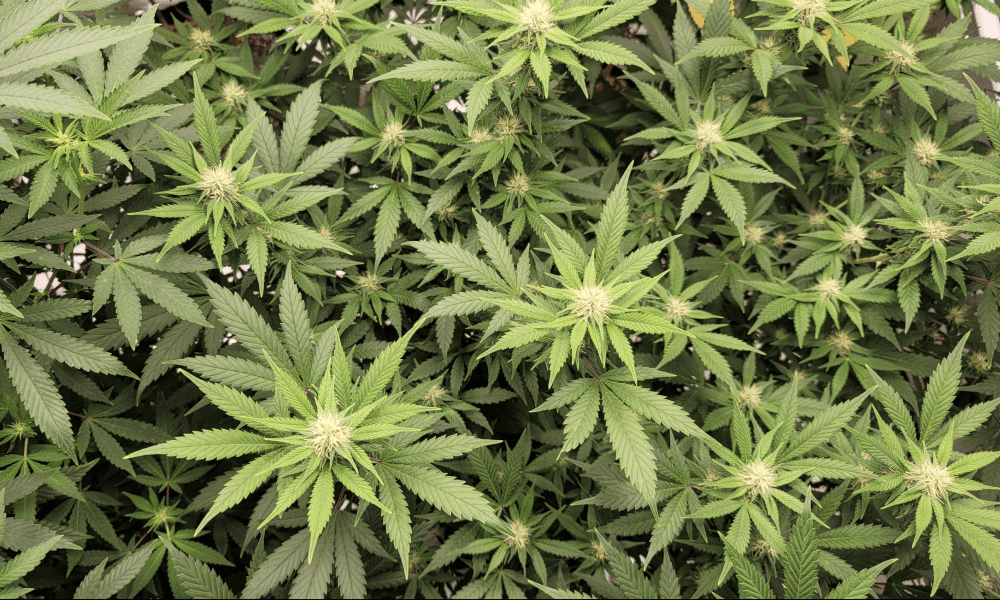A new infographic from an advocacy group representing Native American tribes in the legal cannabis industry shows that more than a fourth of Indigenous communities in the continental United States are now involved with marijuana or hemp programs.
The map, created by the Indigenous Cannabis Industry Association (ICIA) in collaboration with the law firm Vicente, shows the locations of more than 100 tribal marijuana and hemp programs across the country.
Overall, approximately 26 percent of the 358 federally recognized Indigenous communities in the continental U.S. are now involved in some sort of cannabis program, the groups said.
The data, they said in a press release, “shows that the Indigenous cannabis industry is trending upward in terms of jobs, community development, and overall industry growth, with many Tribes currently scaling to meet demands for global cannabis distribution.”
“Since the first regulated Indigenous cannabis storefront opened almost 10 years ago in Washington State,” the groups said, “dozens of sovereign Indigenous communities have created their own unique regulatory systems to govern cannabis cultivation, production and sales.”

Indigenous Cannabis Industry Association
The map shows both individual programs as well as clusters that “denote tribal and Indigenous-led enterprises that are already working together to create successful supply chains and distribution networks.”
“Indigenous cannabis programs are a vital piece of America’s cannabis movement,” Andrew Livingston, Vicente’s director of economics and market analysis, said in a statement. “And these businesses deserve recognition. The goal of our study is to provide information on how different Indigenous communities have established their regulated cannabis programs, the size of the economic opportunity, and the ways that regulating cannabis can be structured in the future to further the goals of each community.”
In North Carolina, for example, a single, isolated dot represents the legal marijuana market recently launched by the Eastern Band of Cherokee Indians, which now serves both tribal members and adult visitors alike. That’s despite marijuana still being prohibited in North Carolina itself, whether for medical or adult use.
It’s believed that in 2020, the Oglala Sioux Tribe, located in South Dakota, became the first tribe to vote to legalize marijuana within a U.S. state where the plant remained illegal.
In other states, meanwhile, including Minnesota, Oklahoma and much of the American West, the map is peppered with multiple tribal programs. Many of those states, notably Minnesota, have worked with Indigenous communities to incorporate tribal-run businesses into state-legal marijuana markets.
Minnesota’s 2023 cannabis law allowed tribes within the state to open marijuana businesses before the state itself began licensing retailers. Some tribal governments—including the Red Lake Band of Chippewa Indians, the White Earth Nation and the Leech Lake Band of Ojibwe—entered the legal market early on.
Rob Pero, ICIA’s founder, said the joint research project between his organization and Vicente “will highlight the thoughtful work that has gone into these sovereign regulatory programs as well as how these businesses affect local employment and revenue for community services.”
“Together, we hope to inform, inspire and empower other Indigenous communities considering cannabis as well as policy makers around the world,” he said.
Indigenous-Led Campaign Aims To Legalize Medical Marijuana In Wisconsin
Photo courtesy of Mike Latimer.

 Breaking News12 months ago
Breaking News12 months ago
 best list10 months ago
best list10 months ago
 Bay Smokes11 months ago
Bay Smokes11 months ago
 Mississippi Cannabis News1 year ago
Mississippi Cannabis News1 year ago
 cbd1 year ago
cbd1 year ago
 California1 year ago
California1 year ago
 Breaking News12 months ago
Breaking News12 months ago
 Business8 months ago
Business8 months ago















































